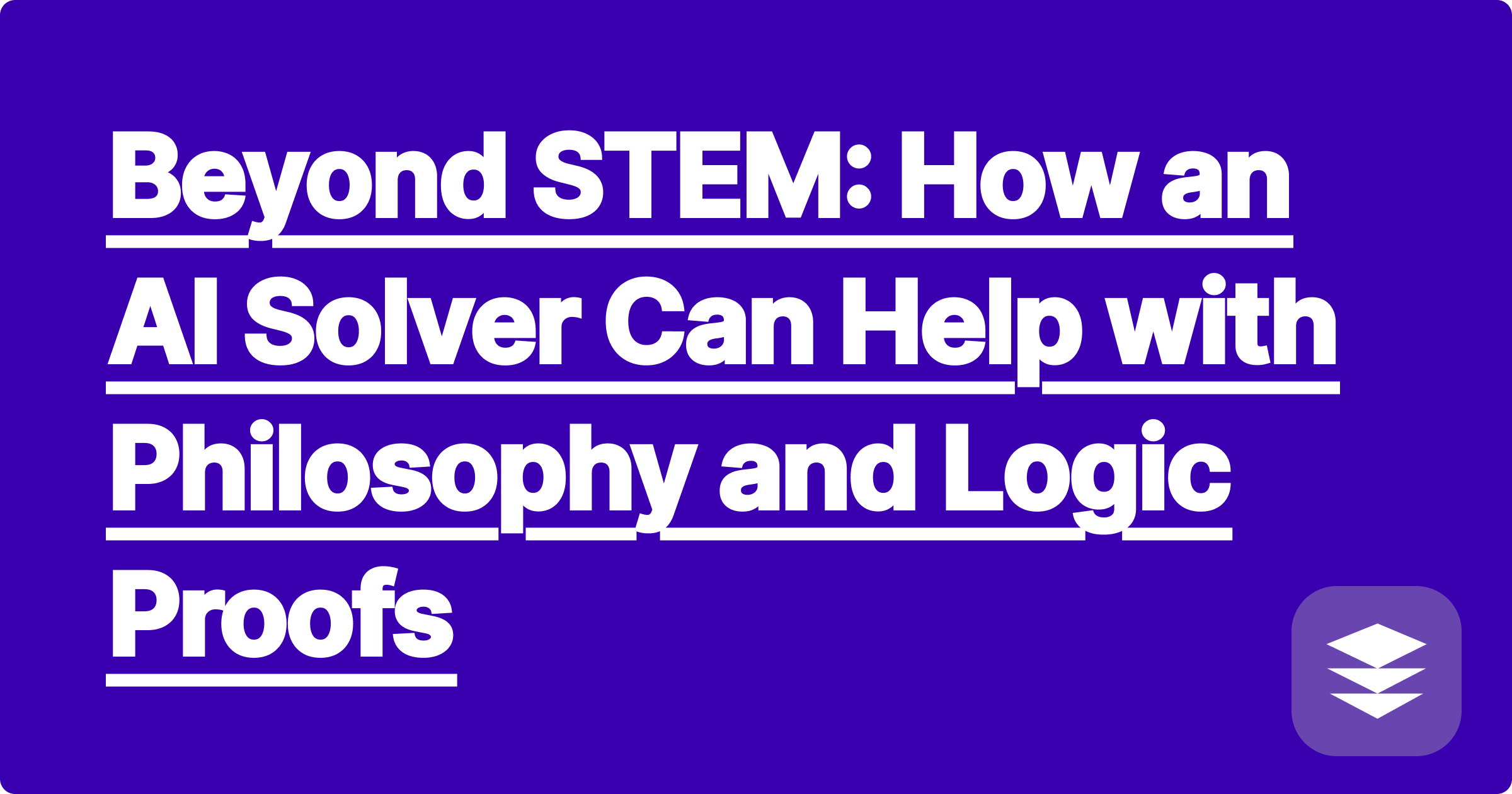
Many students are surprised to find that their introductory philosophy or critical thinking class feels a lot like a math class. The field of formal logic, which is the bedrock of philosophy, computer science, and mathematics, uses symbols, rules, and rigorous proofs to analyze the validity of arguments. Creating a truth table or writing a natural deduction proof can be just as challenging as solving an algebra problem. This is why many humanities students find themselves needing philosophy homework help.
A powerful AI assistant like GPAI Solver isn't limited to numerical problems. It can also act as a powerful formal logic solver.
Example Workflow 1: Truth Tables
[Image: A screenshot of the GPAI Solver interface displaying a perfectly formatted truth table for a complex logical expression, with the final column showing all "True" values. Alt-text: An AI formal logic solver generating a truth table.]
Example Workflow 2: Analyzing Arguments
You can use these tools to analyze the great arguments from the history of philosophy.
A: Yes. Advanced solvers can parse and analyze expressions in first-order predicate logic (with quantifiers like ∀ for 'all' and ∃ for 'there exists'). They can also handle many problems in modal logic (dealing with possibility and necessity).
A: The goal is to use the AI to learn the rules more effectively. By attempting a proof yourself and then asking the AI to show you its version, you can see where you missed a step or could have used a more efficient rule. It's a tool for practice and verification.
Logic is the universal language of reason. Whether you're in engineering, computer science, or philosophy, the ability to construct and analyze a rigorous argument is a critical skill. An AI assistant can be your personal tutor in this art, helping you master the rules and build a more logical, critical mind.
[Get help with your philosophy and logic homework. Try the GPAI Solver today. Sign up for 100 free credits.]
Is 'Knowing' Obsolete? The Future of Education in the Age of AI
How AI Can Help Us Rediscover the 'Play' in Learning
Your Personal 'Anti-Bias' Assistant: Using AI to Challenge Your Own Assumptions
The Ethics of 'Perfect' Submissions: A Conversation About the 'Humanizer'
Beyond STEM: How an AI Solver Can Help with Philosophy and Logic Proofs
The 'Forgetting Curve' is Now Optional: How AI Creates Your External Memory
Can an AI Have a 'Eureka!' Moment? Exploring a Model's Inner Workings
From Information Scarcity to Abundance: A New Skillset is Required
Just Trust Me, Bro': Why Showing Your Work (with AI) Builds Credibility